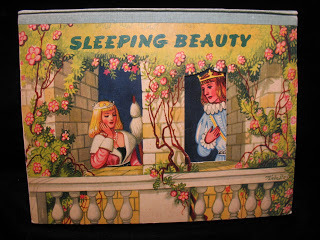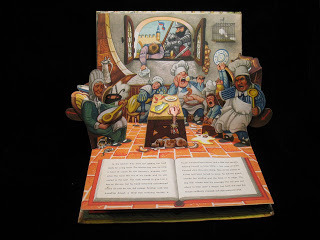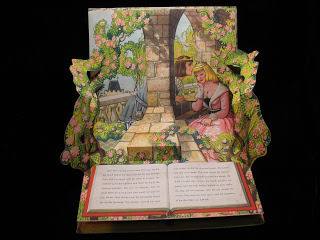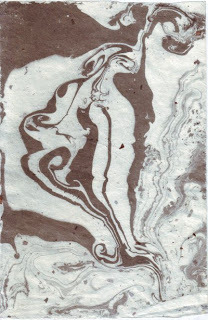Matthew Reinhart's Blog, page 37
December 20, 2010
Word of the Day: Scripophily
scripophily (skri-POF-uh-lee) nounThe hobby of collecting historic stock and bond certificates. Also, such a collection.[From scrip, short for subscription + -phily (love).]



Published on December 20, 2010 15:27
December 17, 2010
Word of the Day: Savoir-faire
Savoir-faire: The ability to say or do the right or graceful thing in any situation.From French savoir-faire (know-how), from savoir (to know) + faire (to do). 
Published on December 17, 2010 11:55
December 16, 2010
Word of the Day: Utopia
UtopiaThe term come from Greek: ou (not) + topos (place)
An ideal place or state. An impractical scheme for social or political reform. Utopia was originally an imaginary ideal island described in the homonymous book (1516) by Sir Thomas More.
 --Gio
--Gio
An ideal place or state. An impractical scheme for social or political reform. Utopia was originally an imaginary ideal island described in the homonymous book (1516) by Sir Thomas More.
 --Gio
--Gio
Published on December 16, 2010 05:44
December 15, 2010
Word of the Day: karma
Karma in Indian religions is the concept of "action" or "deed" that causes the entire cycle of cause and effect. It is also believed to be the force generated by a person's actions to perpetuate transmigration and in its ethical consequences to determine the nature of the person's next existence.

--Gio

--Gio
Published on December 15, 2010 06:34
December 14, 2010
Word of the Day: zeitgeist
zeitgeistFrom German (spirit of the time) Zeit (time) + Geist (spirit).
The spirit of the time; general trend of thought or feeling characteristic of a particular period of time, of an era.

The spirit of the time; general trend of thought or feeling characteristic of a particular period of time, of an era.

Published on December 14, 2010 14:57
December 10, 2010
Word of the Day: Swivet
Swivet (SWIV-it) noun
A state of anxiety, discomposure or agitation; tizzy. (Usually used in the phrase "in a swivet".)
[Of unknown origin.]


A state of anxiety, discomposure or agitation; tizzy. (Usually used in the phrase "in a swivet".)
[Of unknown origin.]

Published on December 10, 2010 06:55
Listen Up: C'est si bon
Sometimes Pandora radio stations play songs I've never heard of, and this past week I discovered "C'est si bon" covered by Louis Armstrong. It's a catchy little tune and with Louis Armstrong's distinct voice he adds a little of New Orleans jazz to the song. The original song was popularized by Eartha Kitt and was written in 1947 by Henri Betti and Anrdé Hornez (there is an English version of the song as well that was written by Jerry Seelen). Check out Louis' version here:
http://www.dailymotion.com/video/xipqv_louis-armstrong-cest-si-bon
--Jess
http://www.dailymotion.com/video/xipqv_louis-armstrong-cest-si-bon
--Jess
Published on December 10, 2010 06:43
December 9, 2010
Vintage Movable Review: Sleeping Beauty



@font-face { font-family: "Cambria"; }p.MsoNormal, li.MsoNormal, div.MsoNormal { margin: 0in 0in 0.0001pt; font-size: 12pt; font-family: "Times New Roman"; }div.Section1 { page: Section1; }
It's winter and I feel like hibernating. This desire for dreamland reminds me of the great pop-up, Sleeping Beauty by Vojtech Kubasta. This English language copy was printed in 1961 by Artia in Prague for Bancroft & Co. in London. It is a charming retelling of the classic fairytale and Kubasta has brought his trademark design to the work. Largely cut from single sheets of paper, he embellished these inventive pop-ups with pull tabs (including the cover!). Kubasta's color palette and characters are lively and unique and the story invites countless rereadings…that is after I take a nap.
~Kyle
Published on December 09, 2010 07:26
Word of the Day: Suminagashi
Suminagashi (sue-me-NAH-gah-she), which means "ink-floating", is the ancient zen technique of drawing on paper.
It is believed to be the oldest form of marbling, originating in China over 2,000 years ago and practiced in Japan by Shinto priests as early as the 12th century. Japanese Sumi-e inks were originally used, dropped carefully to float on a still water surface and then blown across to form delicate swirls, after which the ink was picked up by laying a sheet of white rice paper atop the ink covered water. Combining the knowledge of fluid mechanics with artistic talent, the artist controls the floating pigments through the viscosity and surface tension of the water to create images suggestive of mountain ranges, landscapes, clouds and animals before printing them on a sheet of paper. --Gio
--Gio
It is believed to be the oldest form of marbling, originating in China over 2,000 years ago and practiced in Japan by Shinto priests as early as the 12th century. Japanese Sumi-e inks were originally used, dropped carefully to float on a still water surface and then blown across to form delicate swirls, after which the ink was picked up by laying a sheet of white rice paper atop the ink covered water. Combining the knowledge of fluid mechanics with artistic talent, the artist controls the floating pigments through the viscosity and surface tension of the water to create images suggestive of mountain ranges, landscapes, clouds and animals before printing them on a sheet of paper.
 --Gio
--Gio
Published on December 09, 2010 07:20
December 8, 2010
History Lesson: A Charlie Brown Christmas

On December 9th, 1965, "A Charlie Brown Christmas" premiered on CBS and was the first prime-time animated TV special based upon the comic strip Peanuts, by Charles M. Schulz. This holiday classic is now in it's 45th year on television.
--Jess
Published on December 08, 2010 08:19



